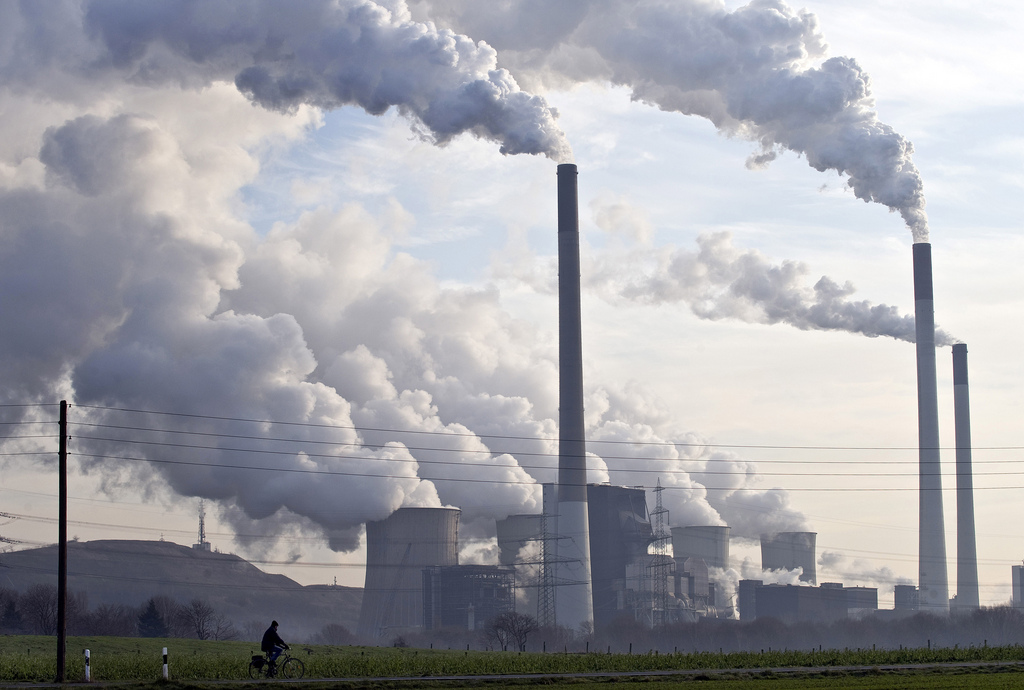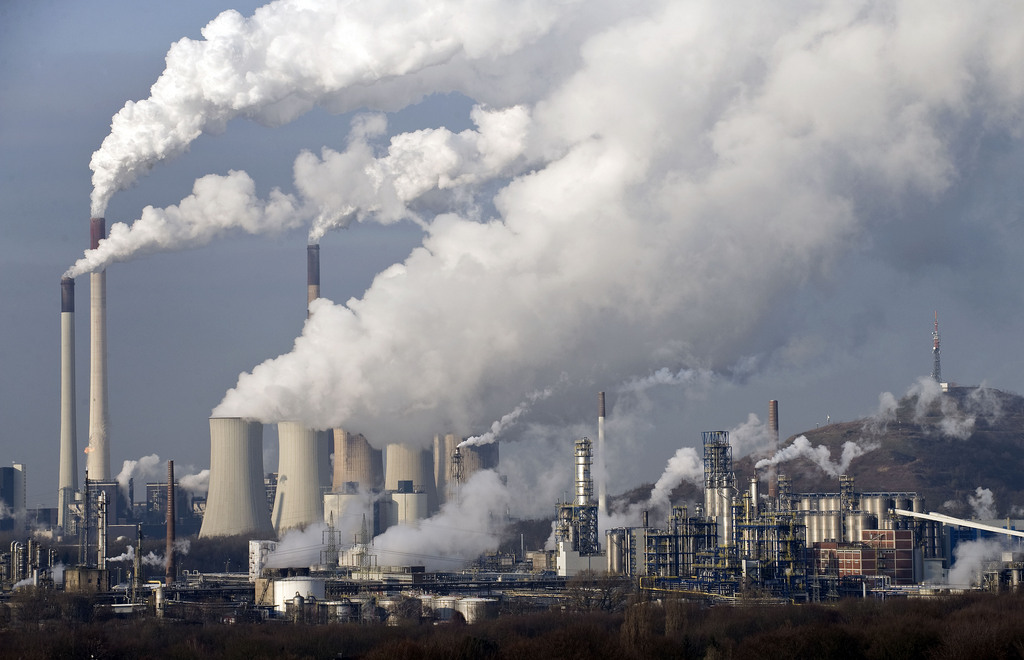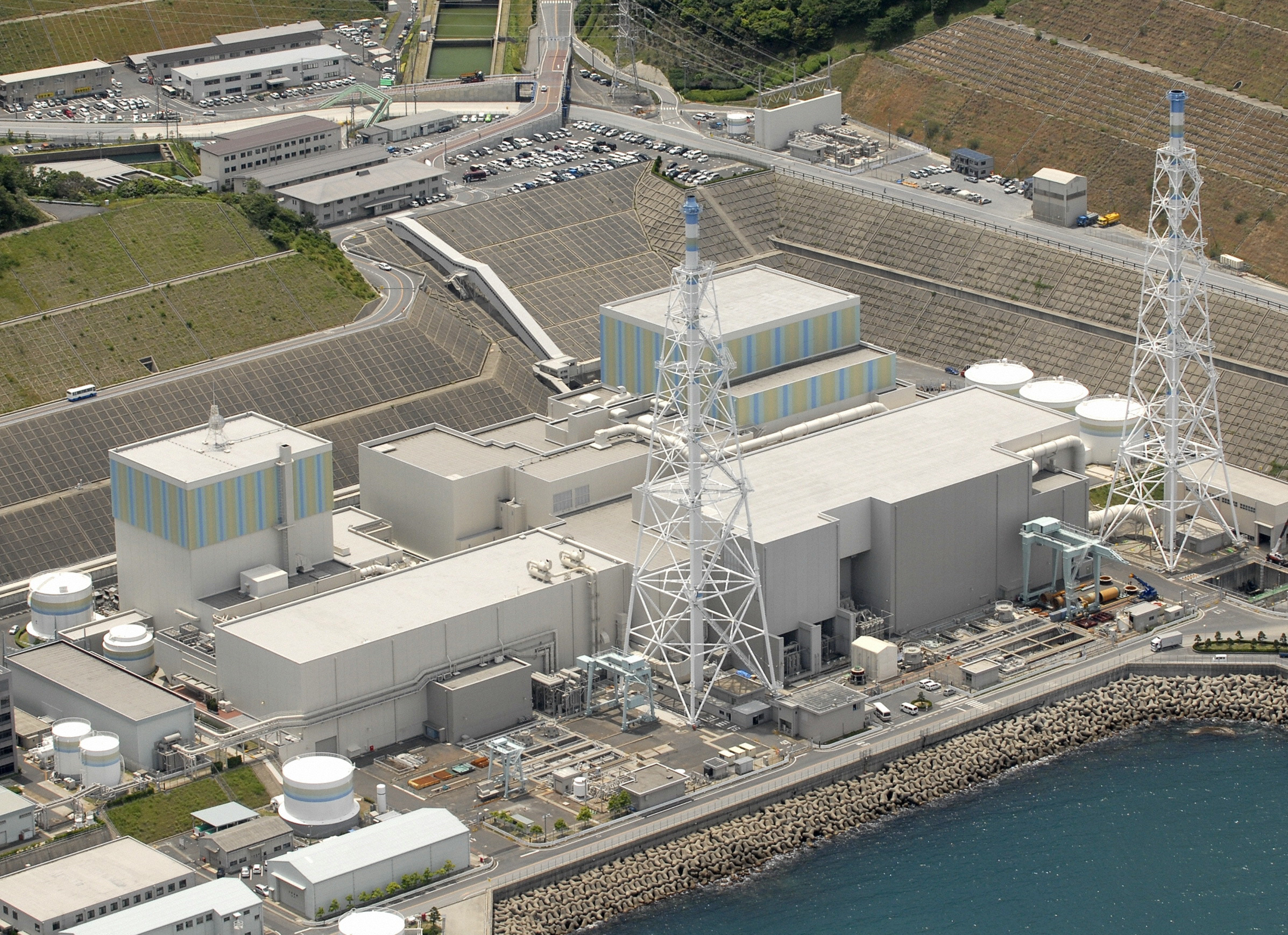Study says CO2 emissions need more drastic cuts

Climate experts in Bern have warned that limiting the rise in global temperature will not be enough to protect the climate system as a whole from the dangerous impact caused by human activity.
Most countries have accepted that greenhouse gas emissions should be stabilised so that the average global temperature rises by no more than two degrees in comparison with the beginning of industrialisation.
However, in their study published in the specialist journal Nature the experts, from Bern University’s Oeschger Centre for Climate Research, say such phenomena as the rise in sea level, the acidification of the oceans – which among other things threatens coral reefs – and poor harvests cannot be avoided simply by aiming for this global temperature target.
It is essential to reduce CO2 emissions yet further, they say. They have produced model calculations on the basis of a wide range of scenarios, to show what emissions would be admissible in order to protect the climate system as a whole, which – as defined by the United Nations in 1992 – includes the atmosphere, hydrosphere, biosphere, geosphere and the interactions between them.
“We have been able to show what level of CO2 emissions in the coming decades would be acceptable it we are to achieve each one of the additional climate goals, such as a consistent level of agricultural production and the stabilisation of the oceans,” writes lead author Marco Steinacher in a press release on the study.
“If we take all the goals together into account, the reduction in CO2 emissions must be twice as much as it needs to be simply to reach the two degree goal,” he says.
Challenge
The computer simulations show that the biggest challenge, and the one requiring the most massive reduction in CO2 emissions, is to stop the acidification of the oceans.
The three researchers say further studies need to be carried out and relevant climate targets set.
They point out that decisions on the level of change that is acceptable lie with politicians and society, but say that constantly rising emissions are steadily narrowing their room for manoeuvre.
Meanwhile, the Federal Environment Office announced on Wednesday that Switzerland failed to meet its target for CO2 reductions in 2012. The CO2 levy will therefore be raised from CHF36 ($38) to CHF60 per tonne next year.
The CO2 levy on fossil combustible fuels, such as heating oil and natural gas, was introduced in Switzerland in 2008 to help achieve statutory CO2 emission targets.

In compliance with the JTI standards
More: SWI swissinfo.ch certified by the Journalism Trust Initiative


You can find an overview of ongoing debates with our journalists here. Please join us!
If you want to start a conversation about a topic raised in this article or want to report factual errors, email us at english@swissinfo.ch.